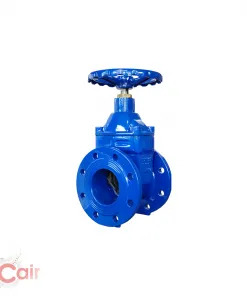Gate valves are a crucial component in industrial systems, especially when dealing with high-pressure applications. These valves are known for their ability to provide a tight seal, excellent durability, and reliable performance. Choosing the right gate valve is vital for ensuring safety, efficiency, and long-term reliability in operations involving high-pressure environments. Here’s a detailed guide on what to consider when selecting gate valves for high-pressure applications.
Understanding Gate Valves
Gate valves are linear motion valves that open and close by lifting or lowering a rectangular or circular gate. They are primarily used to start or stop the flow of liquid or gas and are not typically designed for throttling purposes. In high-pressure systems, gate valves ensure minimal pressure drop when fully open and provide a secure shutoff when closed.
Their robust design makes them ideal for applications in industries such as oil and gas, power plants, petrochemicals, and water treatment facilities. However, not all gate valves are suited for high-pressure use. To select the right valve, several critical factors must be evaluated.
Key Factors to Consider
1. Material of Construction
High-pressure applications require gate valves made from durable materials that can withstand extreme pressure and temperature. Common materials include:
• Stainless Steel: Offers excellent corrosion resistance and durability.
• Carbon Steel: Ideal for high-pressure and high-temperature environments.
• Alloy Steel: Provides enhanced strength and resistance to wear and tear.
Choosing the right material ensures that the valve performs optimally and has a long service life, even under demanding conditions.
2. Pressure and Temperature Ratings
When selecting a gate valve, it’s important to verify its pressure and temperature ratings. Look for valves that comply with industry standards such as ASME or API to ensure they can handle the specific pressure levels of your system. High-pressure applications often demand valves with a higher pressure class, such as Class 600, Class 900, or even higher.
3. Type of Gate
Gate valves come in various designs, with the most common being:
• Solid Wedge Gate Valve: Suitable for most applications, providing durability and strength.
• Flexible Wedge Gate Valve: Helps accommodate thermal expansion and prevents binding.
• Parallel Slide Gate Valve: Ideal for high-pressure steam applications.
Selecting the right type of gate design depends on the specific requirements of the application.
4. Sealing Mechanism
A reliable sealing mechanism is critical for high-pressure applications. Gate valves for such uses typically have metal-to-metal sealing or resilient sealing systems. Metal-to-metal seals provide superior durability, while resilient seals offer improved flexibility and leak prevention.
5. Size and Flow Capacity
The size of the gate valve and its flow capacity (Cv value) must align with the needs of the system. Proper sizing prevents pressure loss and ensures efficient flow. Oversized or undersized valves can lead to operational inefficiencies and damage to the system.
6. Actuation Mechanism
High-pressure gate valves can be manually operated or automated using actuators. In high-pressure applications, actuators such as pneumatic, hydraulic, or electric types are commonly used to provide precise control and reduce the physical effort required for operation.
7. Compliance with Standards
Always select gate valves from manufacturers who adhere to international quality standards. This ensures that the valves are tested for safety, durability, and performance under high-pressure conditions.
8. Maintenance and Serviceability
Gate valves used in high-pressure applications should be easy to maintain and repair. Look for valves with replaceable parts, easy access to the internal components, and clear instructions for maintenance procedures.
Advantages of Gate Valves in High-Pressure Applications
Gate valves offer several benefits for high-pressure systems:
• Tight Shutoff: Ensures zero leakage when the valve is fully closed.
• Minimal Flow Resistance: Provides low-pressure drop, optimizing system performance.
• Durability: Built to handle extreme conditions, ensuring a long service life.
• Versatility: Suitable for handling a wide range of fluids, including water, steam, oil, and gas.
Why Choosing the Right Manufacturer Matters
The quality of the gate valve significantly depends on the expertise and reliability of the manufacturer. A trusted gate valve manufacturer in India will ensure that the product meets high industry standards and is designed for maximum performance in high-pressure environments. Such manufacturers provide valves that undergo rigorous testing for durability, leak prevention, and pressure handling capabilities.
Conclusion
Selecting the right gate valve for high-pressure applications is crucial for maintaining the safety and efficiency of industrial systems. Factors such as material, pressure rating, sealing mechanism, and compliance with standards should always be carefully evaluated. Additionally, sourcing the valves from a reputable gate valve manufacturer in India ensures that you get a high-quality product that meets your specific requirements.












